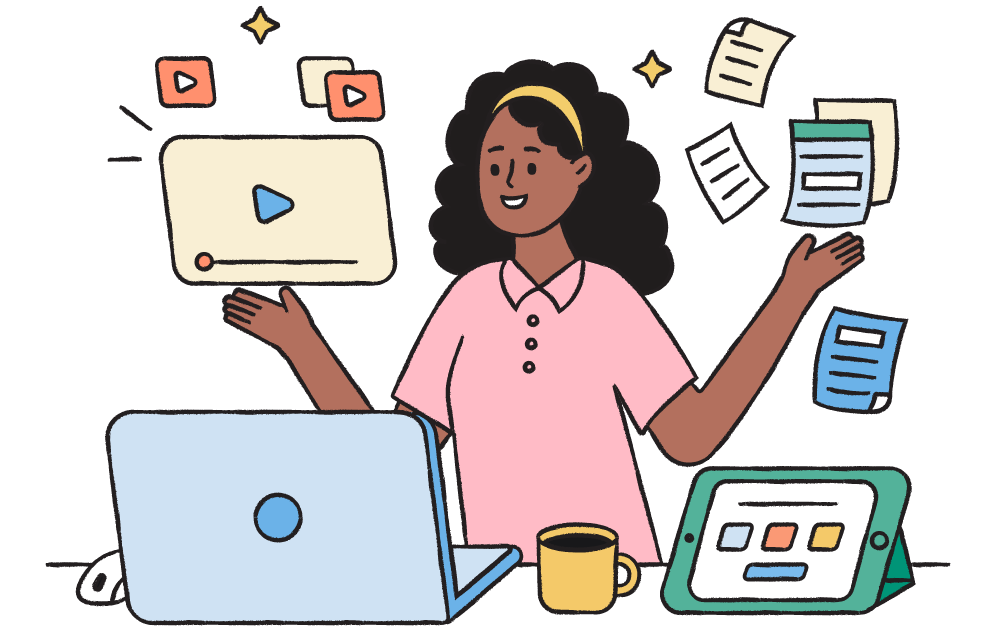Artificial intelligence has emerged as a game-changer in various sectors, and education is no exception. One of the remarkable applications of AI in education is lesson planning. By leveraging AI technologies, educators can unlock a plethora of benefits that enhance their teaching practices and student learning outcomes. Let’s delve into the advantages of using AI to plan lessons and explore how it can revolutionize the educational landscape.
- Time Efficiency and Workflow Optimization: Lesson planning is a time-consuming task for educators, often requiring hours of research, content creation, and organization. AI-powered tools can significantly streamline this process, freeing up valuable time for teachers. With AI, educators can access vast repositories of educational resources, curricula, and materials, allowing them to quickly find relevant content and tailor it to their lessons. AI can also automate routine tasks such as content curation, formatting, and scheduling, simplifying the workflow for teachers. This time efficiency empowers educators to focus more on pedagogical strategies, personalized instruction, and student engagement.
- Personalized Learning Experiences: Each student has unique learning needs and preferences. AI can help educators deliver personalized learning experiences by analyzing student data and generating insights. By harnessing AI, teachers can gain a deeper understanding of students' strengths, weaknesses, and learning styles. AI algorithms can process data on student performance, progress, and preferences, enabling teachers to tailor lessons and assignments to individual needs. Adaptive learning platforms powered by AI can dynamically adjust content and difficulty levels, providing targeted support or challenging tasks based on each student's abilities. This personalized approach fosters engagement, improves comprehension, and boosts student achievement.
- Data-Driven Instructional Strategies: AI empowers educators to make informed decisions and optimize their instructional strategies. By analyzing large datasets, AI algorithms can identify patterns, trends, and correlations in educational outcomes. Teachers can leverage this data to gain insights into effective teaching methods, identify knowledge gaps, and adapt instruction accordingly. AI can provide recommendations for instructional interventions, differentiated instruction, and individualized remediation. Furthermore, AI-powered assessment tools can automate grading, provide instant feedback to students, and generate detailed performance reports. These features enable timely intervention, personalized feedback, and efficient tracking of student progress. By integrating data-driven insights, educators can refine their teaching approaches and promote continuous improvement in their instructional practices.
The benefits of using AI to plan lessons are profound and far-reaching. From time efficiency and workflow optimization to personalized learning experiences and data-driven instructional strategies, AI empowers educators to create engaging, effective, and tailored learning environments. However, it is crucial to strike a balance between the power of AI and the irreplaceable role of educators. AI should be viewed as a tool that supports and enhances teaching practices, rather than replacing human interaction and expertise. By embracing AI in lesson planning, educators can tap into its transformative potential, maximize student learning outcomes, and shape the future of education.


Love the meme! I like that you mentioned you can use AI to help personalize the learning experience for each kid, but couldn't it also get a bit challenging? What if you have some kids that need to learn a certain way, others that need to learn a different way, and even more who need to learn a third way? Are you able to create a lesson plan via AI that is able to cover all of these learning styles/needs?
ReplyDeleteYes....you can but again the AI can not know that child, cannot connect with that child. The AI can give you all sorts of suggestion to support different leaning styles in your classroom, however it's up to us as educator to actually implement it..and that is the real challenge of teaching.
Delete